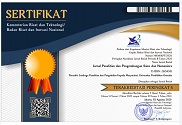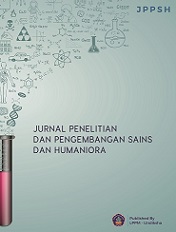The Effect Of Puppets as Teaching Media on the Speaking Competency
DOI:
https://doi.org/10.23887/jppsh.v3i2.21277Keywords:
Speaking Competency, Puppets, ConventionalAbstract
This study focused on investigating the effect of puppets as a teaching media on students’ speaking competency. It was an experimental research administering post-test only control group design. The population was the eighth-grade students of SMP N 6 Singaraja. The samples were VIII B1 class as experimental group and VIII B3 as a control group. The experimental group was treated by using puppets as teaching media, whereas the control group was treated by using the conventional technique. The instruments used in this study to collect the data were the teaching scenario and post-test in the form of a speaking test. The data were then analyzed descriptively, inferentially and effect size. The result was significant. It can be seen from both group's mean score where the experimental group’s score was 93.84 while control group’s score was 90.22 the value of tob (t observed) was 2.111 and it was higher than tcv (t critical value) that was 1.669 (a=0.5). It indicates that there is a significant effect on students’ speaking competency who were taught by puppet and those who were taught by conventional technique.Downloads
Published
2019-10-08
Issue
Section
Articles
License
Authors who publish with the Jurnal Penelitian dan Pengembangan Sains dan Humaniora agree to the following terms:
- Authors retain copyright and grant the journal the right of first publication with the work simultaneously licensed under a Creative Commons Attribution License (CC BY-SA 4.0) that allows others to share the work with an acknowledgment of the work's authorship and initial publication in this journal.
- Authors are able to enter into separate, additional contractual arrangements for the non-exclusive distribution of the journal's published version of the work (e.g., post it to an institutional repository or publish it in a book), with an acknowledgment of its initial publication in this journal.
- Authors are permitted and encouraged to post their work online (e.g., in institutional repositories or on their website) prior to and during the submission process, as it can lead to productive exchanges, as well as earlier and greater citation of published work. (See The Effect of Open Access)









